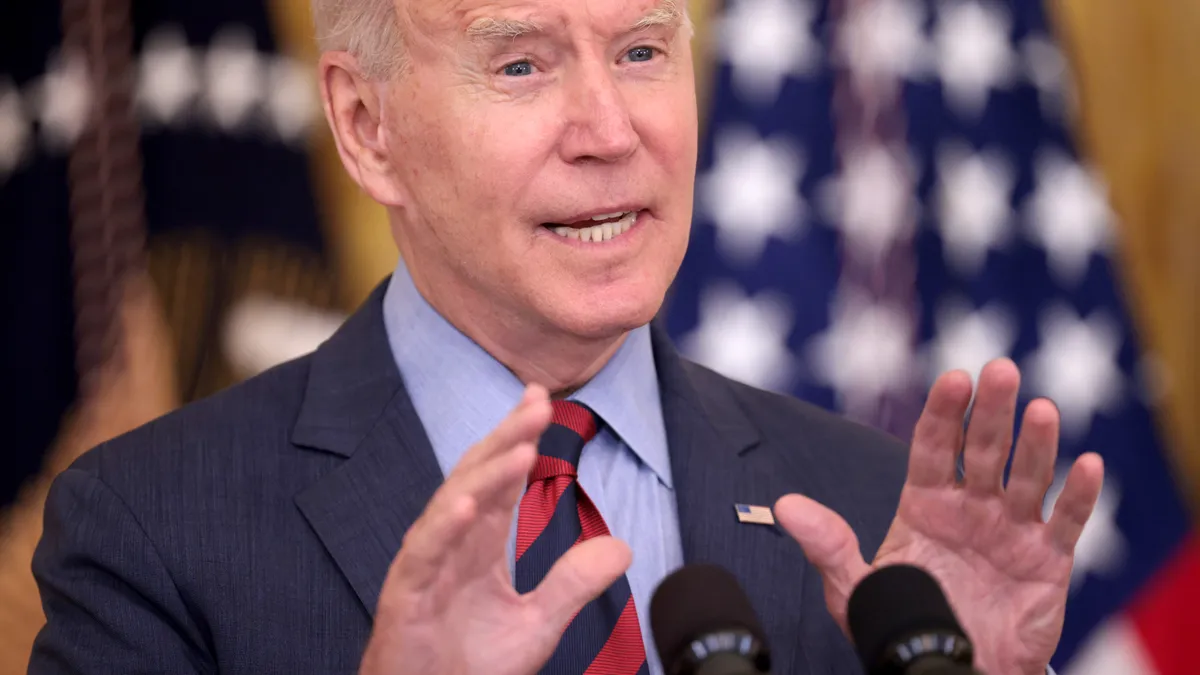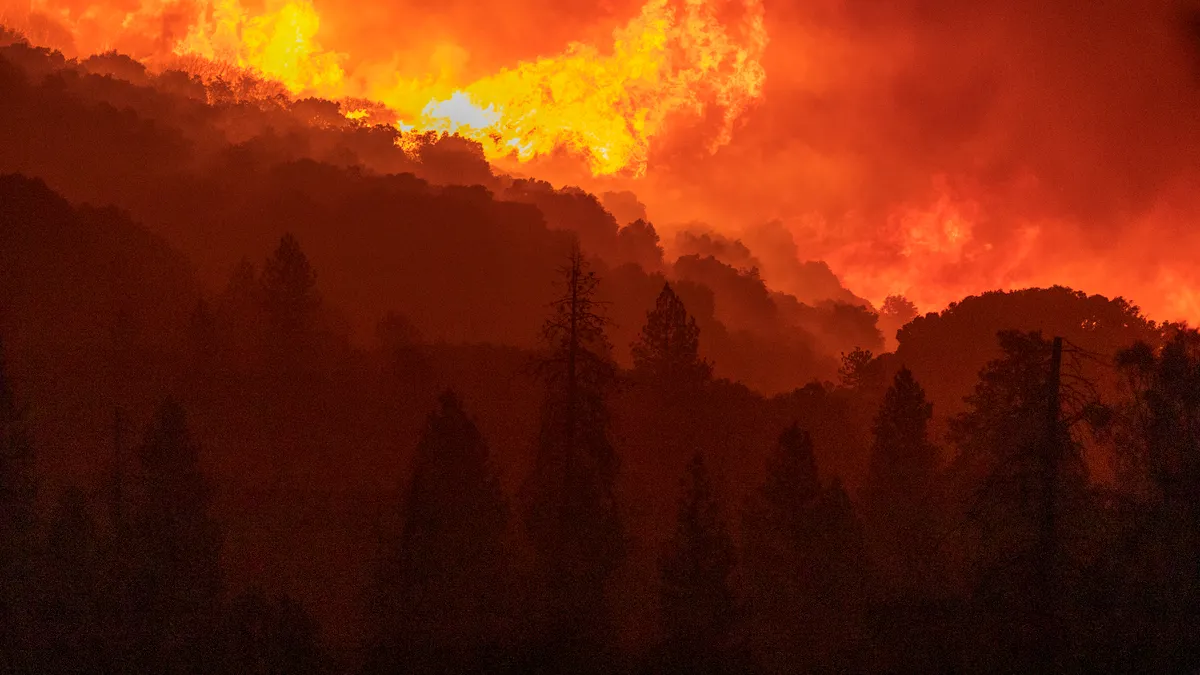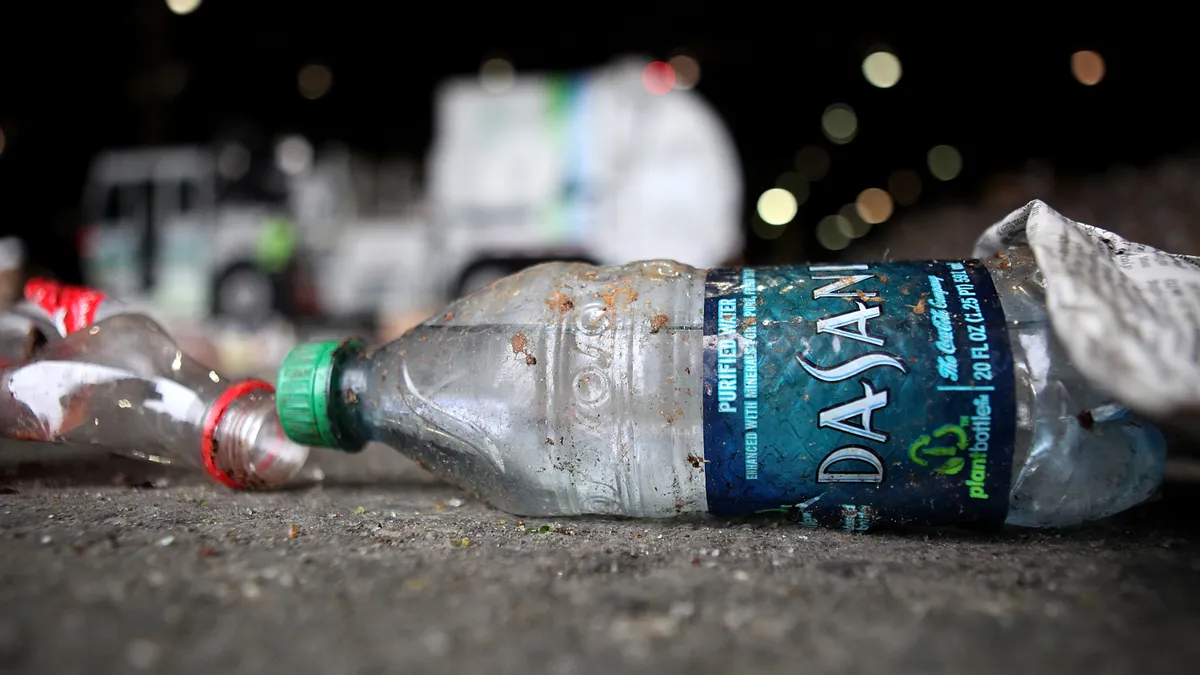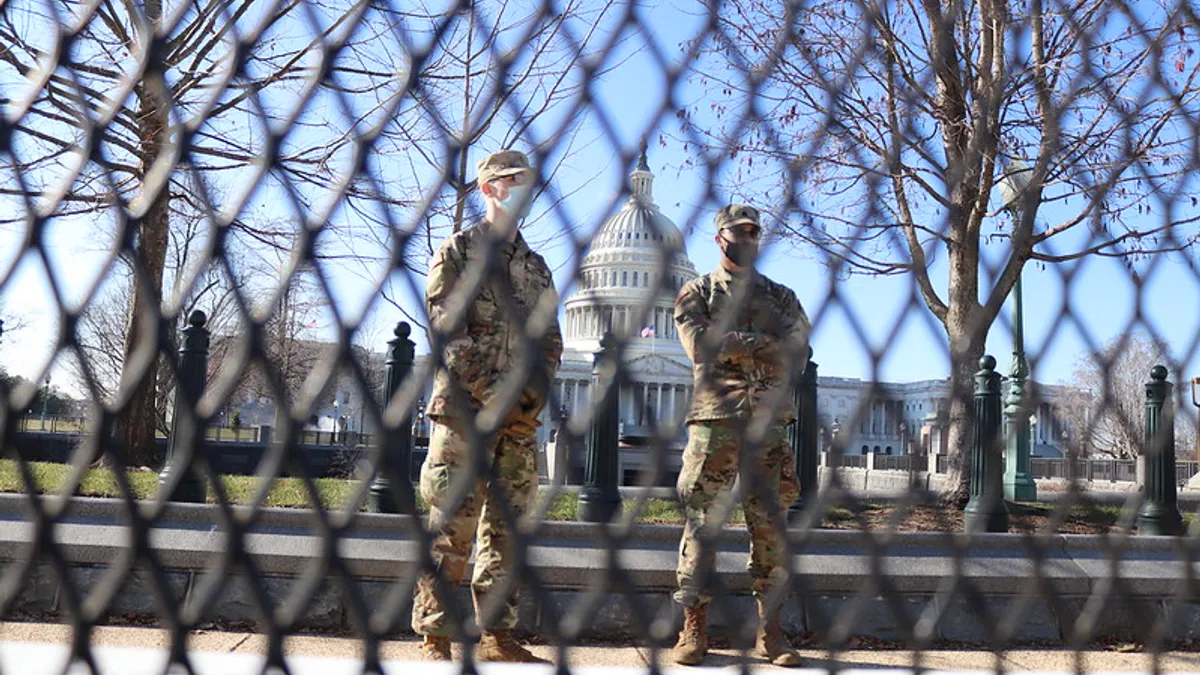Last month, the National Waste & Recycling Association (NWRA) announced a major leadership change: Sharon Kneiss, president and CEO of the association since 2012, had unexpectedly resigned and Kevin Kraushaar assumed the duties of acting president.
Kraushaar started with NWRA in October 2015 as vice president of government affairs and chapter operations and the organization's general counsel. Before this, his long career had also included a similar position at the Consumer Healthcare Products Association and legislative work in Congress and the Michigan Senate.
Waste Dive caught up with Kraushaar to learn about this transitional period for NWRA and where the organization is heading in 2017.
WASTE DIVE: The leadership change was a bit of a shock to some people in the industry. Was it surprising to you when it happened?
KEVIN KRAUSHAAR: Yes, of course. It was a surprise. I think that the board and Sharon had been working very closely together to implement a strategic plan that they had developed jointly with other input a year ago. They were making great progress in moving forward with the implementation of that strategic plan. So it was a surprise because I thought that the association was making great progress and making headway — great headway as a matter of fact in the last several months — on safety in particular. Setting new industry standards on safety and our commitment to our customers. I was hired to come in and raise the profile of the association on Capitol Hill. And those were all part of the strategic elements of what we were trying to achieve. And so yes, I think it was a surprise to everybody, the timing and how it occurred.
Any additional thoughts on why the decision was made?
KRAUSHAAR: The board was meeting in California at the time. And I think that much of what occurred was the result of the timing and the fact that the board was meeting on the day they did. It was Sharon's resignation, it wasn't the board's decision. So it all occurred in the context of the board meeting which had been scheduled three months beforehand, but again it was Sharon's decision to resign and that's the extent of it.
Why were you selected to lead the organization temporarily?
KRAUSHAAR: Well, I think it's because of my position as vice president of government affairs, the fact that I'm general counsel of the association. I'm involved in board matters at every level. I staff the Services Board of Governors. That's essentially it. I'm the person that's the natural fit to come in at the time, based on my level of experience in the association world and the current role I had. I worked very closely with Sharon and I've worked closely with the Board of Trustees on a lot of the issues which are important in the implementation of the strategic plan and that seemed to be in the board's view the best fit at the time.
Have you gained any new perspectives from being acting president so far compared to your former role?
KRAUSHAAR: I've been involved in association management for many, many years. I previously spent 15 years with the Consumer Healthcare Products Association, I have been a consultant to other associations to help them implement and develop government relation strategies and be more effective lobbyists on Capitol Hill and in the state legislatures. So you know it's not something I anticipated when I joined the association in October 2015 but I do feel that at least for the short term I have the background and the qualifications to help lead what is an extremely talented staff to continue the work that Sharon and the board started with the strategic plan.
What are NWRA's priorities in the next few months?
KRAUSHAAR: [Continuing] to elevate our efforts around safety, moving the needle on safety within the industry. We've developed some extremely beneficial partnerships with both ISRI and SWANA to help develop those efforts. We've unveiled new programs to work on things that are important to our members on Capitol Hill. [To] maintain our very important chapter efforts, especially the state advocacy that chapters maintain. So chapter engagement, education and the big issue is the recruitment and retention of qualified workers. There's a tremendous shortage of drivers, welders and mechanics and we've put together a number of staff teams to help implement those strategies internally from a tactical standpoint and to develop greater breadth of programs around some of those other issues that are important to our members.
Do you plan to do anything differently or take these programs in new directions?
KRAUSHAAR: I don't think so. The board worked very hard as did obviously Sharon in putting that plan together, and my direction when I was hired was to continue the implementation of that plan. And other than the fact that I have a bit more involvement in some of the other parts of it that I didn't have before, the goals of the association and the direction of staff is to continue on the same course we were and to work on the same programs and make improvements to the industry that were already underway.
Based on your legislative experience, do you have any predictions on what we can expect out of Congress or the next administration?
KRAUSHAAR: I quit predicting what was going to happen with this election about four months ago. And who knows what this administration is going to do. Certainly we're looking very closely at the Clean Air [regulations] in particular, whether or not there will be an effort to roll that back. The infrastructure discussions that President-elect Trump has talked about are very important to our members and we will be very supportive of that. But we will be looking in the next Congress, not just to the Trump administration, but trying to continue with the three major efforts that we were working on this year.
Those would be some of the Department of Labor, Department of Transportation rules that were in some of the appropriations riders in the appropriations bills. We'd like to see some of those get done. Such as the overtime rule, truck weight, hours of service. The second major issue for us is an extension of the tax extender bill, tax credits that expire at the end of this year for landfill gas, for CNG vehicles. That's a big issue for us. And thirdly is the reauthorization of the Perkins Act which is the federal law which authorizes federal programs for vocational and technical training at the state and local level. And we want to work very closely with our member companies once that law is passed — as hopefully it will be — working with our chapters to make sure that they have the tools and the resources to approach their departments of education and their local technical vocational training programs to train the workers of the future that we need in our industry.
It's drivers, mechanics and welders and any of those other technical occupations. As our industry becomes more innovative and technologically sophisticated, more and more of those jobs are going to be more difficult to fill.
I quit predicting what was going to happen with this election about four months ago. And who knows what this administration is going to do.

Kevin Kraushaar
NWRA Acting President
What can we expect from NWRA in the ongoing New York commercial waste franchise discussion? Will that be more up to the local chapter?
KRAUSHAAR: We're pretty much leaving that to the local chapter.
Is it a case-by-case basis when it comes to franchising reform efforts?
KRAUSHAAR: That's correct. It is a case-by-case basis based on presence of our members and their interests. From the advocacy standpoint, other than the federal advocacy programs, our chapters are very focused on making decisions based on local conditions and local situations and local involvement. And that certainly will not change. It's the chapters that make the decisions about what to lobby on and what to oppose and what to support and that won't change.
Are there any other notable 2017 priorities to share at this time?
KRAUSHAAR: We've got a lot on our plate just trying to implement the programs that are already underway. We have several chapter meetings coming up in the next couple of weeks. We have a professional development safety program that's being done in Fort Myers, FL on [Dec.] 14th. And our next Safety Stand Down Jan. 23rd is on [vehicle] backing.
Any updates on the search process for a permanent president or how long that may take?
KRAUSHAAR: It'll be months. How many, I don't know. The search committee of the Board of Trustees has been formed. They've had one initial call. Beyond that I really don't know what direction they're going in because I'm not involved in the search.
Would you be interested in the position if asked?
KRAUSHAAR: I'm interested in doing what the board of trustees asks me to do.










